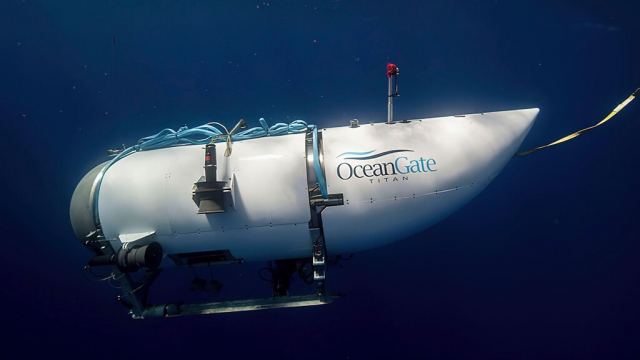Authorities say the missing Titan submersible was destroyed in a catastrophic implosion sometime after it submerged on Sunday. Searchers found wreckage of the vessel not far from the wreck of the Titanic on the floor of the Atlantic Ocean Thursday.
Former Navy submarine operator Mark Barry joined Scripps News to discuss the findings, and explain what causes such an incident.
Barry said it was likely the submersible had some deficiency in the structure of its hull.
"Simply put, water weighs a lot more than air," Barry said. "For example, 33 feet of water depth overhead is equal to the entire weight of the atmosphere above each of us every day. At 12,500 feet, that pressure is almost 400 times greater across the boundary of, say, the submersible. Even the slightest defect in that boundary can allow a pathway for that pressure to rush in. When it does, it does so in the blink of an eye. Thankfully a human wouldn't even feel it, it would happen so fast, so no amount of suffering would occur. The deconstruction of this incident will reveal exactly what failed, but we just need time."
SEE MORE: Director James Cameron comments on tragedy of Titan deaths
He said any recovery efforts would be operating in a difficult environment.
"Pieces are scattered everywhere. Salvage efforts to recover these pieces are up against the danger of being down there in the first place."
Barry said he hopes the incident can improve emergency response in the event of future accidents at sea.
"One of the things that stuck out most to me about this rescue mission was how long it took," he said. "The Coast Guard and other agencies did a commendable job jumping in to help, but it highlights the need to be able to react quicker to these kinds of crisis events undersea — to minimize the impacts of long wait times after they occur."
SEE MORE: Diving into the abyss: What lies in the ocean's depths?
Trending stories at Scrippsnews.com



